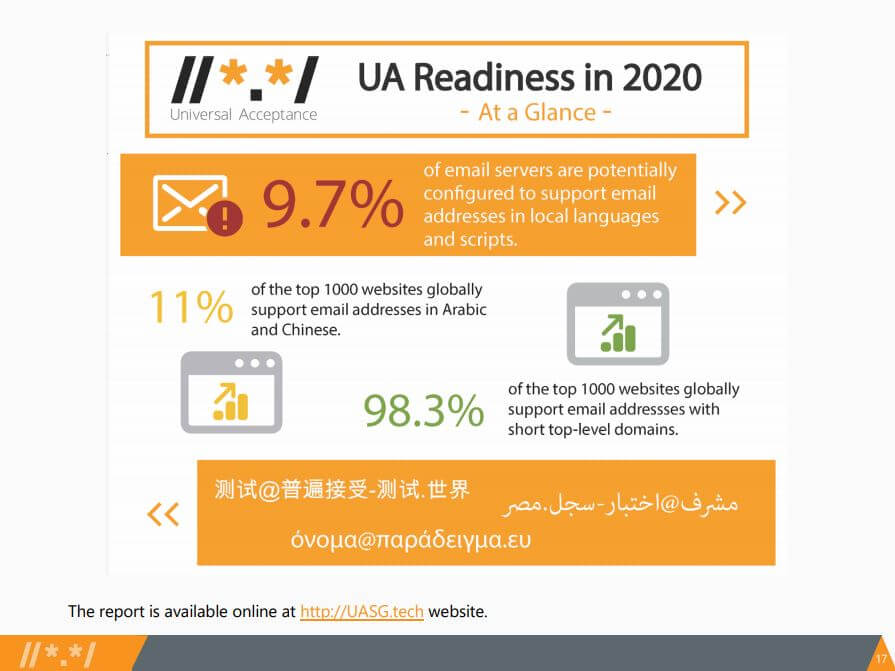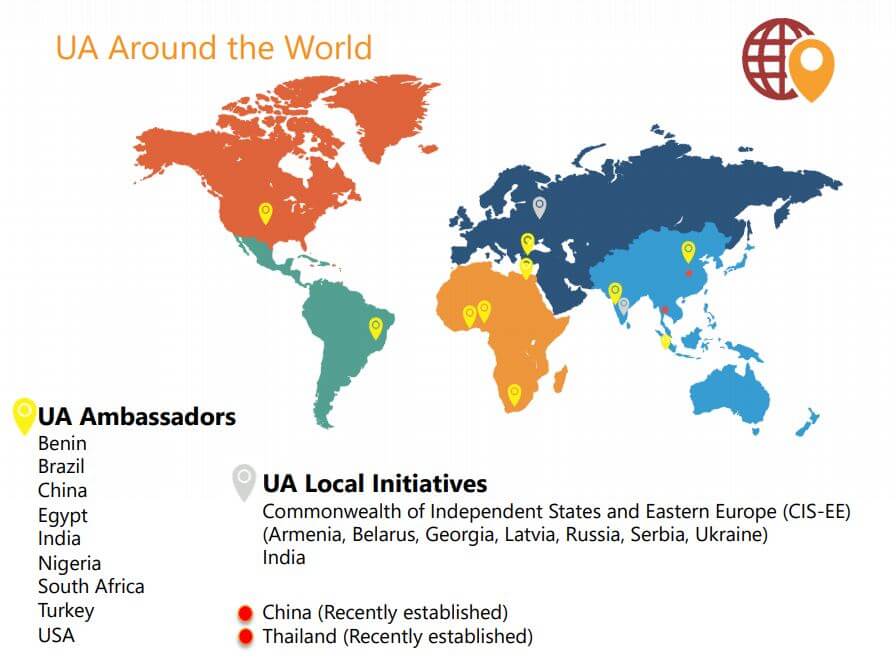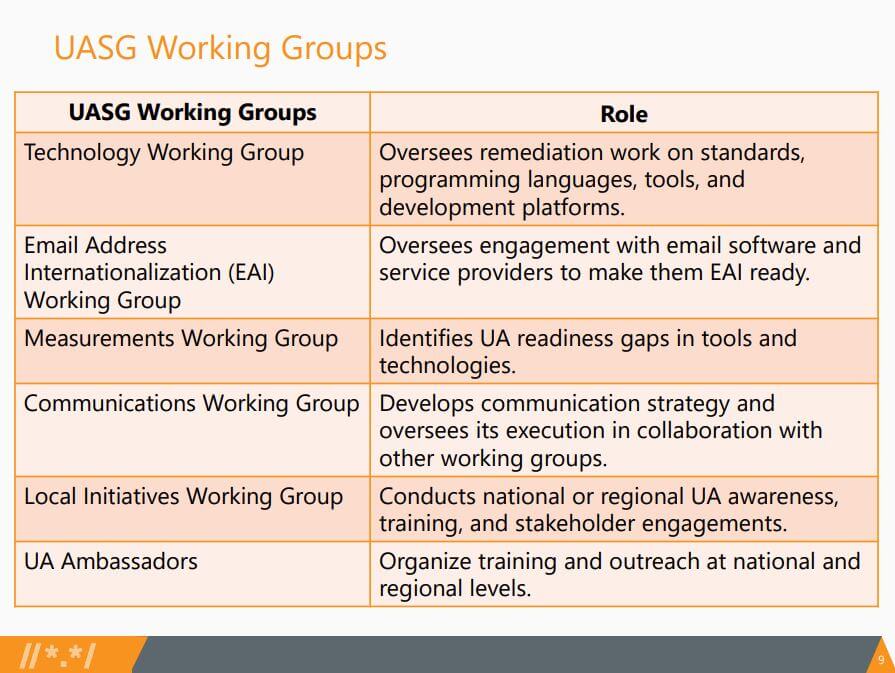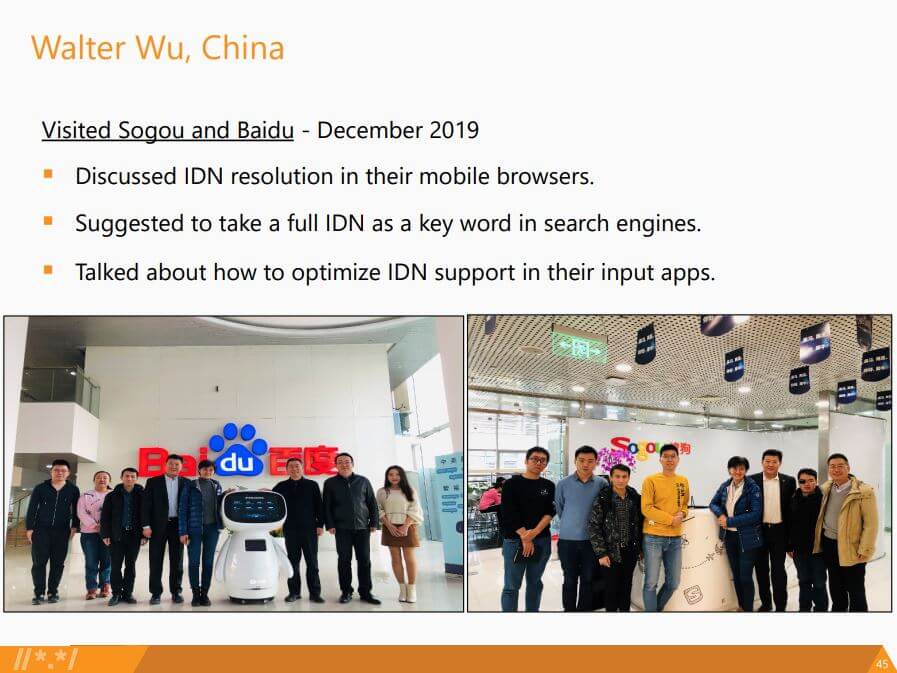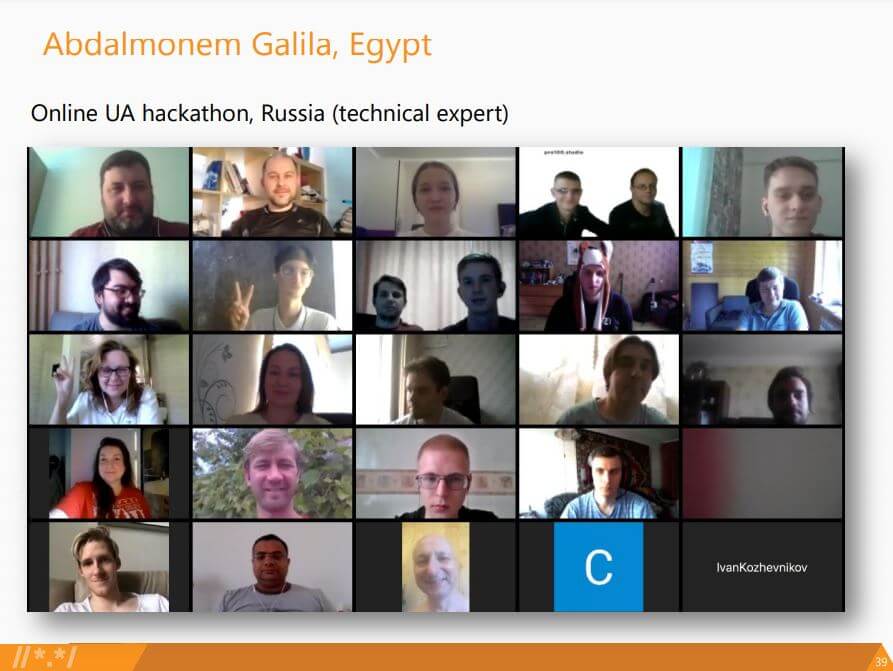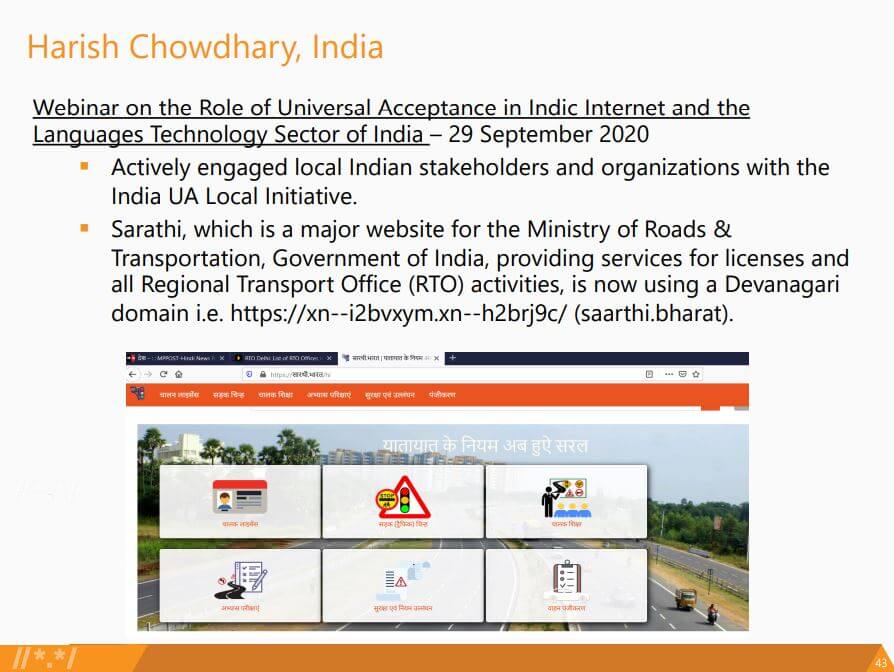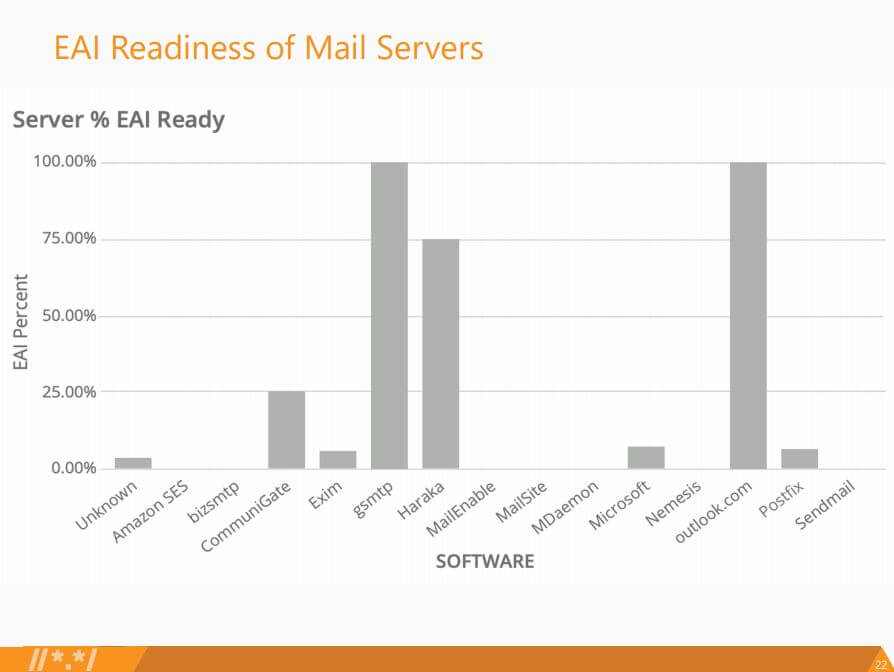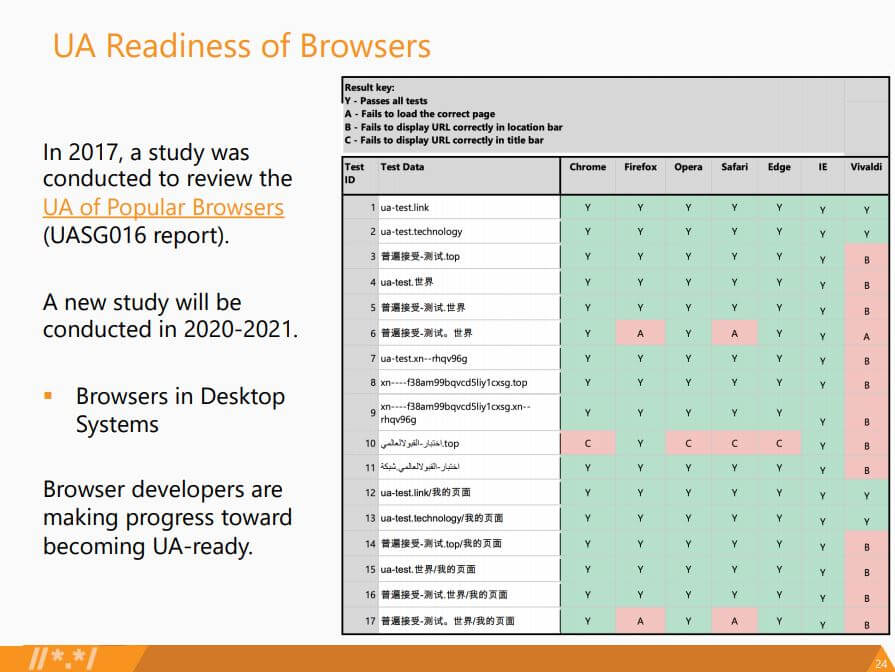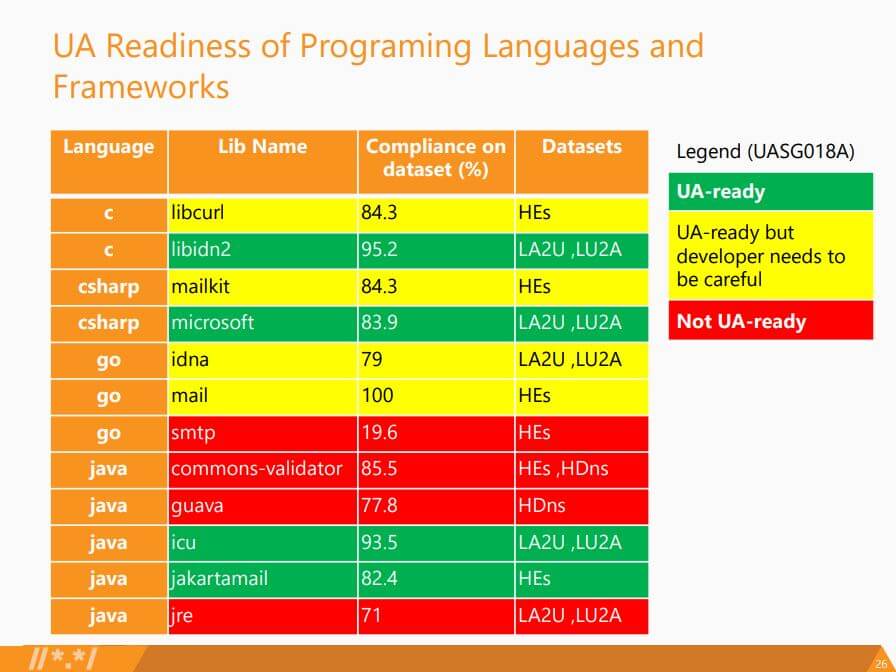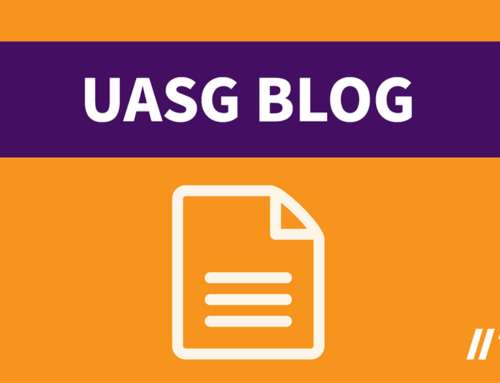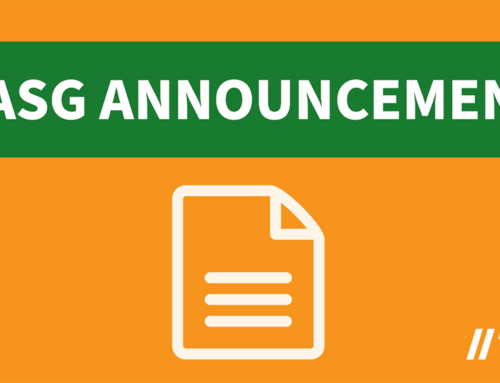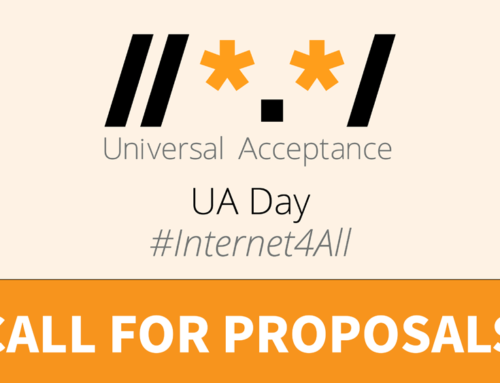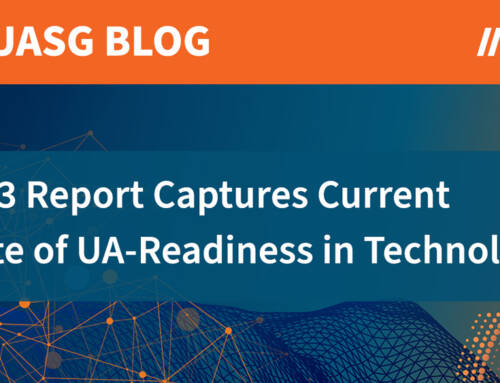During the ICANN69 Virtual Annual General Meeting, the Universal Acceptance Steering Group (UASG) hosted three sessions focused on Universal Acceptance (UA). Session participants from around the world joined to discuss UA activities, engagements, and progress being made globally. For those who were unable to attend, we’ve pulled out key insights from each of our sessions below, as well as provided links to presentation materials and recordings.
COMMUNITY UPDATE ON UNIVERSAL ACCEPTANCE READINESS
This session, attended by 75 participants, introduces the concept of UA, gives an overview of UASG leadership, and outlines progress made towards achieving global UA readiness (session transcript and recording is available here). It also outlines key FY20 activities, including efforts led by UASG Working Groups, UA Local Initiatives, and UA Ambassadors. Notably:
- Since June 2019, there have been 21 UA awareness sessions organized for local, national, and international participants.
- 40 volunteers from 17 countries have participated in sessions to learn how to train others on the fundamentals of UA.
OUTREACH FOR ADDRESSING UNIVERSAL ACCEPTANCE
This session, attended by 61 participants, highlights progress being made around the globe by UA Local Initiatives and UA Ambassadors (session transcript and recording is available here).
- UA Ambassadors:
- UA Ambassadors in China, Egypt, and India provided updates on their efforts to progress UA and Email Address Internationalization (EAI) readiness through webinars, workshops, hackathons, and meetings with influential tech companies in their respective regions.
- Local Initiatives:
- Local initiatives have been established in China, Commonwealth of Independent States (CIS) – Eastern Europe (EE), India, and Thailand. Each of these groups have made promising progress to advance UA.
- In China, initiative members have been focused on accelerating the development and application of EAI and support for Chinese Internationalized Domain Names (IDNs).
- CIS-EE local initiative members have hosted multiple UA trainings and hackathons and have been evaluating UA readiness of high-demand software in Russia.
- Activities in India have centered around technical collaboration, trainings, workshops, and community development.
- In Thailand, an emphasis has been placed on advancing Thai EAI readiness and acceptance of Thai IDNs.
- Additional detailed information about the local initiatives and progress towards an #Internet4All is outlined in this recent blog post.
- Local initiatives have been established in China, Commonwealth of Independent States (CIS) – Eastern Europe (EE), India, and Thailand. Each of these groups have made promising progress to advance UA.
REMEDIATING UNIVERSAL ACCEPTANCE ISSUES
This working session, attended by 85 participants, features insights from the UASG’s Measurement, Technology, and Email Address Internationalization (EAI) working groups (session transcript and recording is available here). The chairs of each working group outlined the current gaps in technology for the Universal Acceptance of all domain names and email addresses, and then conducted a workshop to identify remediation efforts to address these challenges.
- Key issues identified by the working groups include the EAI readiness of webmail services and email servers, as well as the UA readiness of browsers, networking command line tools, programming languages, and frameworks.
- Key remediation efforts stemming from the workshop include making popular libraries as UA-ready as possible for developers, having governments establish procurement requirements with vendors that are UA-ready, adding UA into government digital inclusion programs, and leveraging global industry events/organizations, such as Internet Governance Forums (IGFs), the United Nations, and UNESCO.
Get Involved with the UASG
If these sessions inspire you to get involved and spread awareness of UA, see below for many ways you can help achieve an #Internet4All.
- Join a UA Working Group (Communications, EAI, Measurement, Technology).
- Joining an existing UA Local Initiative by emailing uaprogram@icann.org
- Establish new UA Local Initiative:
- Use the Local Initiative Charter and proposal template available on tech.
- Contact the UASG at info@uasg.tech if you are interested in starting a local initiative in your country or region.
- Follow, share, like and engage with the UASG on social media (Twitter, Facebook, LinkedIn) and use the UASG hashtag in relevant posts: #Internet4All.



